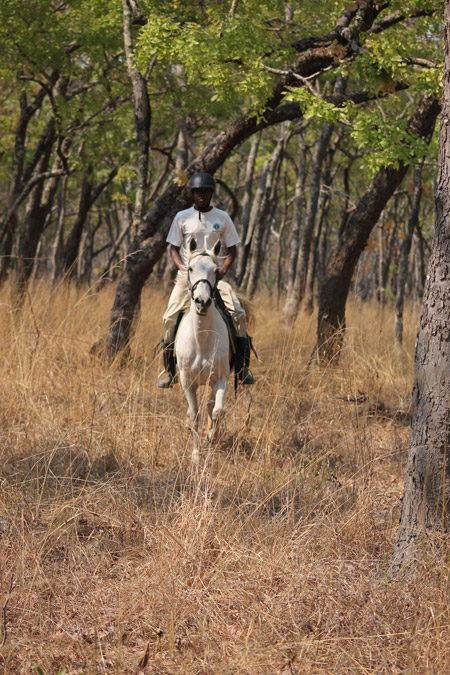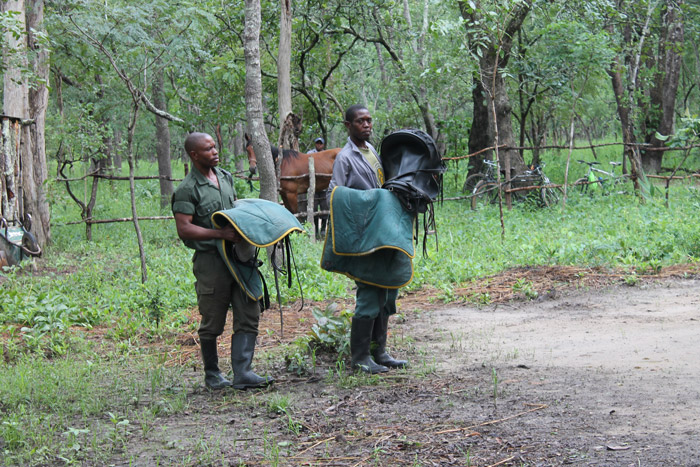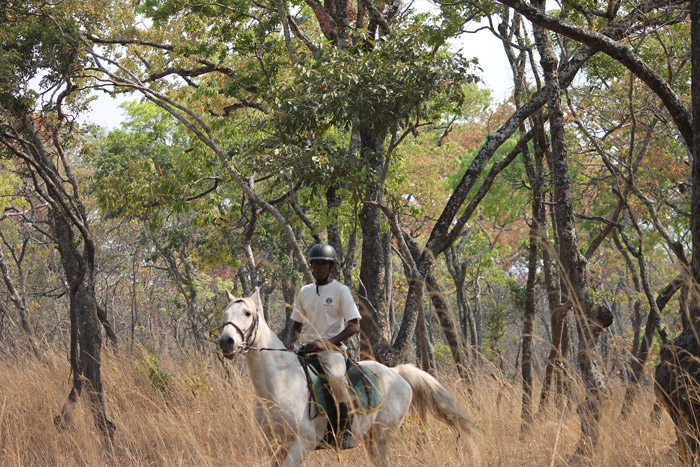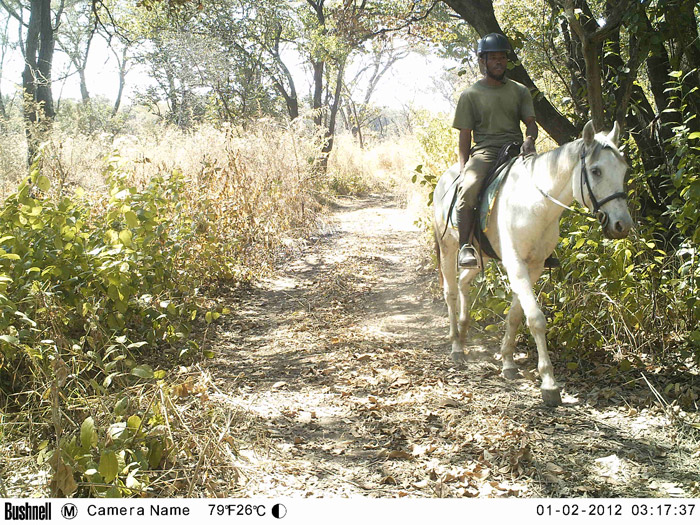The horses at the Bangweulu Wetlands were introduced by the previous conservation manager, Craig Reid. He was a keen horseman who was convinced that horses could greatly assist with monitoring wildlife and, eventually, with anti-poaching patrols. Written by: Andrea Reid

The horses arrived in early 2013, and no one knew how they would adapt to Bangweulu Wetlands with its thick elephant grass and vast dambos. Local communities, who had never seen a horse, greeted them with suspicion and excitement. The Bisa people are traditionally hunter-gathers, and keeping livestock is not common.
But the equestrian unit has been a valuable addition to the area. The horses can cover four times the distance than rangers on a foot patrol. They have a height advantage, with the ability to see poachers and wildlife ahead of them, which is a great advantage in a place like Bangweulu, with its small hills and high grass. Wildlife is also more relaxed in horses’ presence, enabling management to better understand species diversity and populations.


However, the integration of the horses has taken time as the horses needed to adapt to their new environment, which is very different to their lush Kikuyu pastures. The staff also needed to build relationships with the horses.
Albert Mupangachabe, one of the scouts at Bangweulu, was the first to express interest and proved to be a great horseman. Albert took to riding immediately and was a natural on a horse. When you ask Albert about the highlights of his job, he explains how much he enjoys riding and his encounters with animals whilst on horseback. Recently he identified a remnant population of sable antelope, which are thriving due to the extra protection they receive from the Bangweulu Wetlands scouts. He returned that day excitedly, telling the park members how close the sable came to him and how they just continued to graze. He added, “I also enjoy it when each morning I arrive at work and Fiddles greets me with a ‘whinny’.”

The riders have also been taught that it is important to know how to care for the horses – including equestrian-related tasks such as mucking out stables, grooming and feeding. Bangweulu Wetlands plans to grow the equestrian unit to include four members working on rotation.

Visit Bangweulu Wetlands on safari to see conservation in action and to find shoebills and the rare and endemic black lechwe. Bangweulu Wetlands is managed by African Parks.
To comment on this story: Login (or sign up) to our app here - it's a troll-free safe place 🙂.![]()








